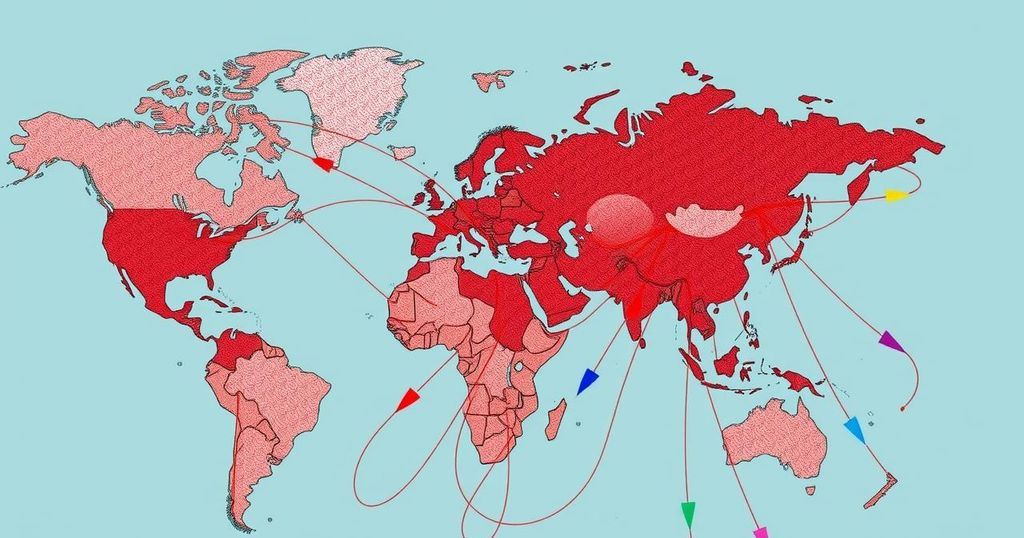Global Elections in 2024: A Year of Discontent and Political Change

In 2024, elections worldwide indicated broad discontent with incumbents as voters rejected established parties, with significant losses seen across many nations, including South Africa and India. Economic turmoil and dissatisfaction stemming from global crises fueled this trend. The rise of populism and external meddling characterized the political climate, accompanied by civil unrest in various regions, marking a turbulent epoch for democracy.
In 2024, voters across the globe overwhelmingly expressed their discontent with incumbent governments during elections held in nearly 70 countries, which collectively represent half of the world’s population. Disillusionment spurred by economic disruptions, inflation, and the ongoing effects of the pandemic resulted in significant losses for ruling parties worldwide. Examples include South Africa’s African National Congress, which suffered a notable defeat after three decades in power, and India’s Bharatiya Janata Party, which lost its parliamentary majority after a decade of dominance. The trend was observed not only in established democracies like the United States and Japan but also in nations across Africa and Europe, signaling a broader rejection of the status quo.
The elections revealed a growing anti-incumbent sentiment fueled by economic grievances and increased political instability. Political analysts have likened this phenomenon to “electoral long COVID,” representing the residual effects of pandemic-related challenges. Many nations experienced transformative electoral outcomes, such as the United Kingdom, where the Labour Party gained power after ousting the Conservative Party following 14 years in governance. Meanwhile, significant political changes unfolded in countries like Namibia and Uruguay, highlighting a global shift toward new leadership amid widespread dissatisfaction.
The rise of populism and far-right parties was evident in various elections, particularly in the European Union, where conservative civic movements gained traction amidst voter dissatisfaction. For instance, France experienced substantial support for the National Rally party, although tactical voting prevented their dominance. Simultaneously, ongoing concerns regarding covert electoral interference emerged, with allegations of foreign meddling prominently affecting the political landscape in countries like Romania and Moldova.
As the year unfolded, additional political turmoil was witnessed in nations such as Venezuela, where allegations of electoral fraud incited protests, and South Korea, where martial law was briefly enacted before swift backlash from lawmakers. The future remains uncertain as incumbent leaders face rising opposition and discontent across multiple regions. Analysts predict that 2025 will continue to feature such instability as voters seek change and express their frustrations with current democratic processes.
This article discusses the global electoral landscape of 2024, characterized by widespread repudiation of incumbent governments and the rise of populist movements. Economic turmoil, increased dissatisfaction stemming from the COVID-19 pandemic, and political unrest influenced voters in various countries, leading to significant political shifts. The backdrop of this analysis includes a range of electoral outcomes, from defeated incumbents to the rise of far-right parties, reflecting widespread instability within democracies around the world. Additionally, the impact of external interference and the public’s perception of democracy plays a critical role in understanding the complexities of voter sentiments in contemporary politics.
The elections of 2024 reflect a significant moment of upheaval in global democracy, as voters increasingly reject established political power in favor of new leadership. This year has shown a striking trend of anti-incumbent sentiment across various regions, driven by economic dissatisfaction and calls for change. As nations grapple with the ramifications of these electoral transformations, the challenges facing incumbents continue to mount, paving the way for an unpredictable future in political governance worldwide.
Original Source: www.clickorlando.com








